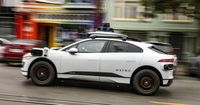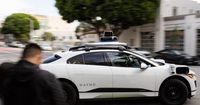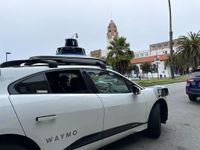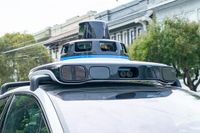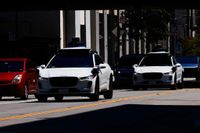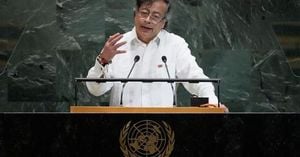San Francisco International Airport (SFO) is embracing the future of transportation as Waymo, the autonomous vehicle company, has secured permission to map its roadways under the recent agreement with Mayor Daniel Lurie’s administration. This significant development, announced on March 17, 2025, marks the first time Waymo will operate at any airport in California, providing the groundwork for future robotaxi services.
The agreement, which took effect on March 14, 2025, is set for 30 days, with the option for SFO to extend this period. During this time, Waymo vehicles will gather mapping data to facilitate the operation of driverless cars, though the permit requires human drivers to oversee the mapping vehicles at all times. This stipulation ensures passenger safety, as the Waymo vehicles are currently prohibited from transporting the general public.
“This agreement is another example of how San Francisco is driving innovation and supporting our economic recovery,” stated Mayor Lurie. “By working to expand transportation options to and from SFO, we’re continuing to make it easier for tourists and business travelers to experience our city.” The mayor expressed optimism about how the deal would highlight San Francisco's role as a leader in technological advancements.
Waymo’s permission to access SFO is particularly significant as airport talks have faced hurdles due to concerns from the Teamsters union, which has long represented workers within the airport and taxi industries. The union has engaged assertively against the introduction of automated vehicles, fearing for the livelihoods of existing delivery and transport services. Peter Finn, vice president of Teamsters Local 856, commended the efforts of city executives, noting, “This commonsense implementation takes safety and jobs seriously.” The way forward involved concessions from Waymo, including not engaging in commercial activities, which was pivotal to achieving the agreement.
The Teamsters union had previously successfully pushed for legislation requiring human drivers for vehicles over 10,000 pounds, which Governor Gavin Newsom vetoed. They argue this latest agreement is reflective of their continuing fight to secure protections for transport workers. Earlier discussions on Waymo’s operations at SFO revealed rifts when the Teamsters filed ethics complaints against the company, alleging unregistered lobbying activities. Despite these challenges, both parties appear to have resolved some concerns to reach this latest landmark agreement.
Nicole Gavel, Waymo’s head of business development and strategic partnerships, affirmed the company’s excitement and commitment to advancing its services, “We’re pleased to play a part in showing the world the future starts here in San Francisco.” Gavel added the importance of collecting local geographical data as instrumental to the company's growth plans, especially considering the high volume of travelers who frequent SFO.
Waymo has become synonymous with autonomous driving technology and is viewed as one of the leaders of the industry. With estimates placing its valuation around $45 billion, the company continues to expand both its operational footprint and technological capabilities. It is particularly well-established across various locations, including Phoenix, where Waymo launched its first airport rides back in late 2022.
Despite its other successes, the challenge of gaining passenger rights at SFO still looms large. Currently, Waymo’s California services limited to the San Francisco area, including parts of San Mateo County. They recently announced plans to initiate fare-based rides across several new Peninsula cities, seemingly laying the groundwork for wider availability. The majority of rides to and from SFO are reportedly handled by services such as Uber and Lyft. This presents both competitive challenges for Waymo and opportunities as it seeks to secure consistent market access.
Although the ruling will not immediately permit transport for public passengers, this mapping process functions as an important stepping stone during conversations with SFO officials. The outline of future operational agreements will define how Waymo can eventually roll out broader services at the airport. Airport spokesperson Doug Yakel indicated cooperation has been instrumental, noting, “We are not working toward any specific timeline just yet, but progress continues.”
The adaptive measures taken through the permit tie back to the city's desire for responsible innovation. Mayor Lurie noted how access to SFO's mapping was another milestone as it collaborates to fortify economic stability amid recovery following the COVID pandemic's impact on travel. By partnering with entities like Waymo, the future of airport transportation can redefine conveniences for travelers and reestablish the Bay Area as a transportation hub.
Waymo’s undeterred ambition, coupled with proactive partnership efforts, may allow it to navigate the challenges posed by unions and regulatory bodies. The weeks and months following this initial permit will be pivotal for determining how quickly and effectively the company can carry its plans to fruition. It remains to be seen how these developments will influence the competitive dynamics at SFO and what successes will arise through innovative transportation solutions.
